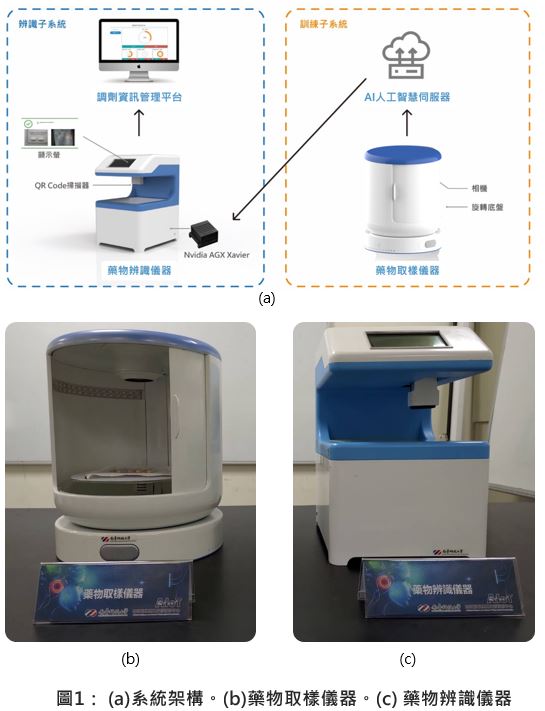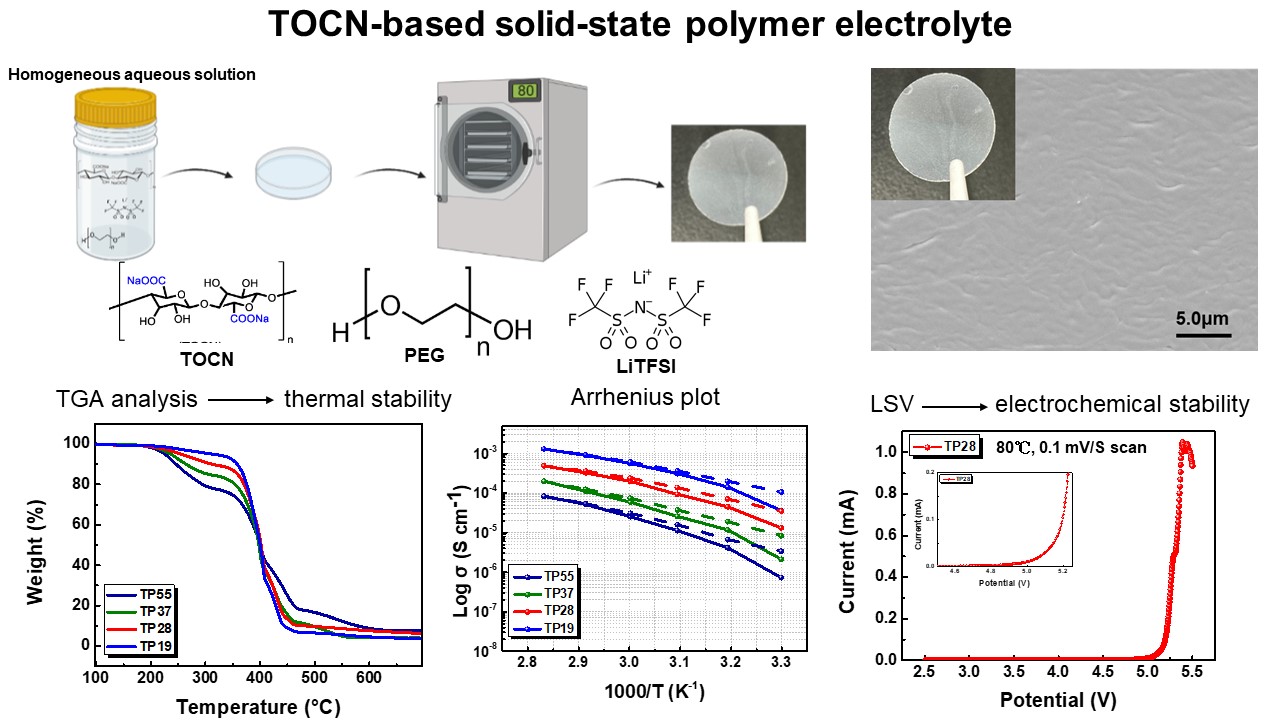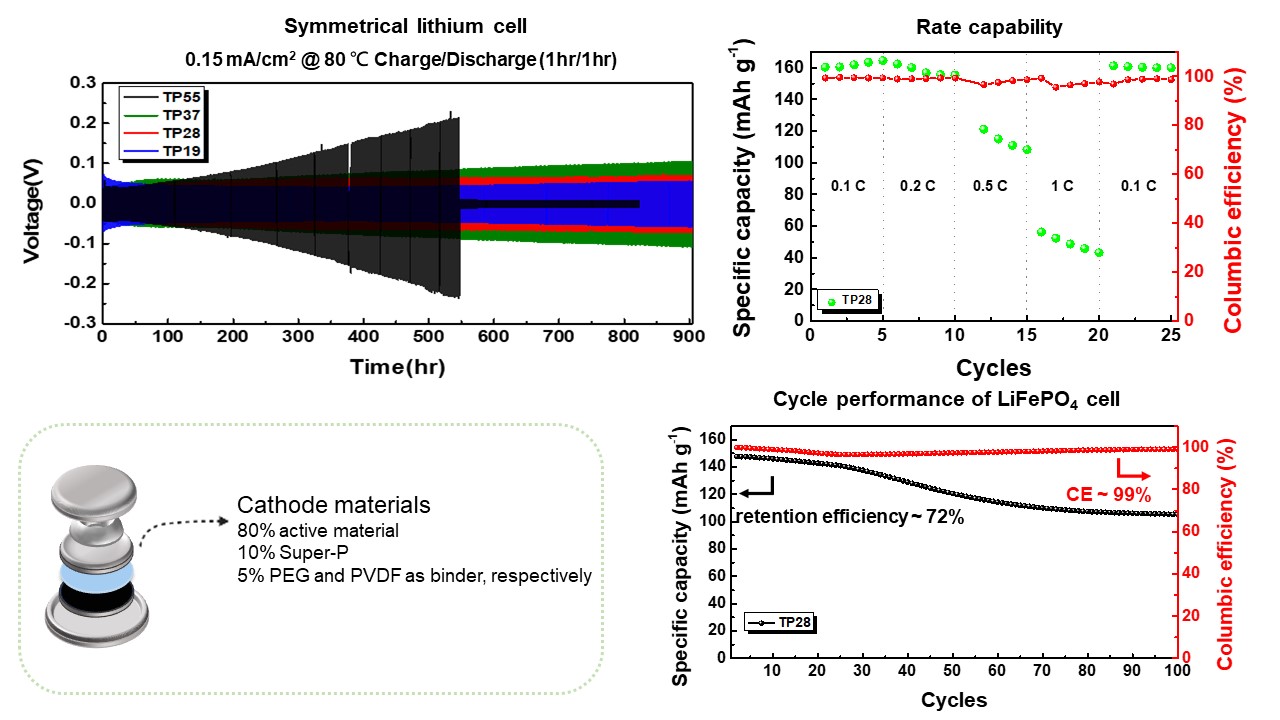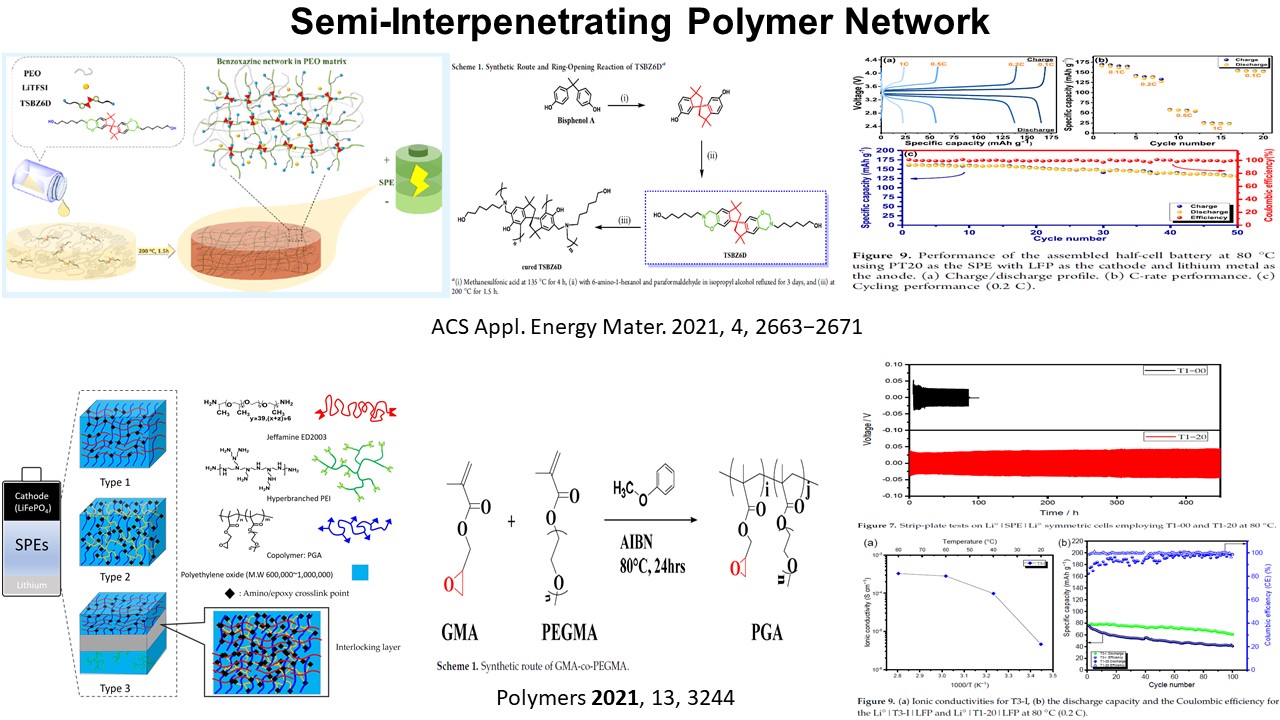| Technical Name | Solid-state polymer electrolyte of novel designed polymernatural cellulose-based for lithium metal batteries | ||
|---|---|---|---|
| Project Operator | National Taiwan University | ||
| Project Host | 鄭如忠 | ||
| Summary | We employed the environmentally friendly TOCN coupling the soft polymer electrolyte to develop a new solid-state polymer electrolyte (SPE) with enhanced compressive strength by simple solution casting. We showed that our prepared SPEs showed decent electrochemical stability for more than 1000 hours in the assembled lithium symmetric battery at a current density of 0.15 mA/cm2. Furthermore, the assembled LiFePO4 battery can deliver a specific capacity of 160 mAh/g at 0.1C,maintain high Coulombic efficiency72 of discharge capacity retention efficiency after long-term cycles. Our developed SPEs not only possess high eco-friendly sustainability but also show the promising potential for realizing safestable Li-metal batteries. |
||
| Scientific Breakthrough | Provided the well miscibility between TOCN, PEGLiTFSI, the one-step prepared solid-state polyelectrolyte membrane has a homogeneous morphology without phase separation. This important feature provides smooth channels for ion transport,effectively reduces the SPE thicknessthe interfacial resistance with the electrode. Finally, we showed that the assembled LiFePO4 battery can deliver a specific capacity of 160 mAh/g at 0.1Cmaintain high Coulombic efficiency72 of discharge capacity retention efficiency after long-term cycles. |
||
| Industrial Applicability | Taking the lithium batteries used in the electric vehicle market in 2021 as an example, the cathode materials account for 45 of the production cost, followed by the electrolyte accounting for 25,the anode materialsthe separator are 138, respectively. Therefore, the development of solid-state polymer electrolytes (SPEs) can not only reduce the cost of liquid-state organic electrolytesseparators, but also improve the thermal stabilityenergy density of lithium batteries. Furthermore, the SPEs are compatible to a massive manufacturing processhave a wider range of applications than solid-state ceramic electrolytes. |
||
| Keyword | Green process Natural cellulose Solid-state polymer electrolyte Lithium metal battery | ||
- Contact
- Pei-Jin Lin
- r10524026@ntu.edu.tw
other people also saw







